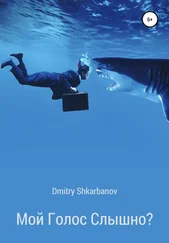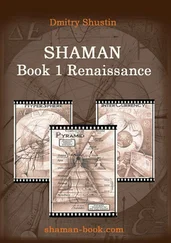Homer realised he didn’t believe the brigadier. Whoever this enemy was that had captured the station, the way he behaved was absolutely inexplicable. Why would anyone think of using hermetic doors to protect themselves against just two men? What kind of bandits would engage in long negotiations with armed men at a border post, instead of simply riddling them with bullets as they approached?
And finally, what was the meaning of that final, sinister word barked by those mysterious sentries? ‘Judgement’?
There is nothing more valuable than human life, Sasha’s father used to tell her. And for him those were not merely empty words, not just some bland truism. But there was a time when her father didn’t think that way at all – there were good reasons why he became the youngest military commander on the entire line.
At the age of twenty years, you take killing and death far less seriously, and life itself seems like a game that you can start all over again if anything happens. It is no coincidence that the armies of the world were always made up of yesterday’s schoolboys. And all these youngsters playing at war were commanded by someone who could see thousands of people fighting and being killed as no more than blue and red arrows on maps, someone who could take the decision to sacrifice a company or a regiment without thinking about the torn-off legs, ripped-out intestines and shattered skulls.
There was a time when her father also regarded his enemies and even himself with disdain, when he astounded everyone with his readiness to take on missions that should have cost him his life. But he wasn’t reckless, and his actions were always precisely calculated. Intelligent and assiduous, at the same time he was indifferent to life, he had no sense of its reality, he didn’t think about consequences and wasn’t burdened with a conscience. No, he never fired at women and children, but he executed deserters in person and was always the first to storm the machine-gun nests. He was also almost insensitive to pain. Basically, he couldn’t give a damn for anything. Until he met Sasha’s mother.
She hooked him, so accustomed to his victories, with her own indifference. His only weakness – his vanity – which had driven him on against the machine-guns, launched him into a new, desperate assault that unexpectedly became a protracted siege.
He had never needed to make any special effort in love before: women themselves cast down their banners at his feet. Debauched by their easy acquiescence, he always sated his appetite for his latest girlfriend before he could fall in love with her and lost all interest in his conquest after the very first night. His relentless insistence and his fame blinded girls’ eyes, and very few of them even tried to apply the age-old strategy of making a man wait until they got to know him.
But she found him boring. She wasn’t impressed by his decorations and titles, his triumphs in battle and love. She didn’t respond to his glances, she shook her head at his jokes. And he started taking the conquest of this young woman as a serious challenge. More serious than subjugating the nearby stations.
She was supposed to be just one more notch on his gun butt, but soon he realised that the prospect of intimacy with her was receding – and also becoming less important. Her attitude made the chance to spend even an hour together during the day feel like a real achievement – and she only went that far in order to torment him a little. She doubted the value of his accomplishments and mocked his principles. She chided him for his heartlessness. She shook his confidence in his strength and his goals.
He put up with all of it. But more than that – he enjoyed it. With her he started reflecting on things, hesitating over decisions. And then he started feeling things: helplessness – because he didn’t know how to get close to this girl; regret for every minute not spent with her; and even fear – the fear of losing her, without ever having won her. Love. And she rewarded him with a sign. A silver ring.
Finally, when he had completely forgotten how to manage without her, she yielded to him.
A year later Sasha was born – which meant that now there were two lives he could no longer treat with disdain, and he himself no longer had any right to be killed. At the age of only twenty-five, when you command the most powerful army in the observable part of the world, it’s hard to rid yourself of the feeling that your orders can stop the world itself from turning. No tremendous, supernatural might is required for taking away people’s lives, but the power to give back life to the dead is granted to no one.
This truth was borne in on him cruelly when his wife died of tuberculosis and he was helpless to save her. After that something in him was broken. Sasha was only four years old at the time, but she remembered her mother very well. And she remembered the terrible, tunnel-black void that was left behind after her mother was gone. A gaping abyss – the closeness of death – opened up in her little world, and she looked down into it often. The edges of the abyss knitted together only very slowly. It was two or three years before Sasha stopped calling out to her mother in her sleep.
Her father still called out to her sometimes, even now.
Maybe Homer was approaching things from the wrong angle. If the hero of his epic refused to reveal himself, maybe he should start with the hero’s future beloved? Tempt him out with her beauty and youthful freshness?
If Homer discreetly described her charms first, then maybe the hero would step out of non-existence to meet her. For their love to be perfect, he would have to be her ideal complement, which meant he would have to appear in the epic complete and fully formed. Their curves and contours, their very thoughts would have to match each other as precisely as fragments of the shattered stained-glass panels at Novoslobodskaya Station. After all, they also were once parts of a single whole, so it was their destiny to be reunited. Homer couldn’t see anything wrong in appropriating this effective plotline from the long-departed classics. But although the solution looked simple, there were still problems: sculpting a living girl out of paper and ink proved to be a task beyond Homer’s power. And he probably couldn’t write convincingly about feelings any longer either.
His present relationship with Elena was filled with the tender feelings of old age, but they had met each other too late to abandon the past completely in their love. At that age people strive to appease their loneliness, not quench their passion.
Nikolai Ivanovich’s one true love had been entombed up on the surface. In the decades that had passed since then, all the details of her appearance, apart from one, had faded away, he couldn’t have described the affair from life any longer. And in any case, there had been nothing heroic about that relationship.
On the same day when Moscow was hit by the nuclear deluge, Nikolai was offered the chance to become a driver, replacing old Serov, who had been retired. His pay would almost double, and they even gave him a few days off before his promotion took effect.
He phoned his wife, who said she would bake an apple cake, and then she went out to buy champagne, taking the children along for the walk.
But he had to finish his shift.
Nikolai Ivanovich climbed into the cabin of the locomotive as its future master, a happily married man right at the very beginning of a tunnel that led off into a miraculously bright future. In the next half hour he aged twenty years in one fell swoop, arriving at the final station a broken man, with no one and nothing. Perhaps that was why every time he came across a train that had survived by some miracle, he was always overwhelmed by the desire to take his legitimate place in the driver’s seat, stroke the control panel with a master’s hand and glance out through the windscreen at the lacework pattern of tunnel liners. To imagine that the train could still be made to work.
Читать дальше











